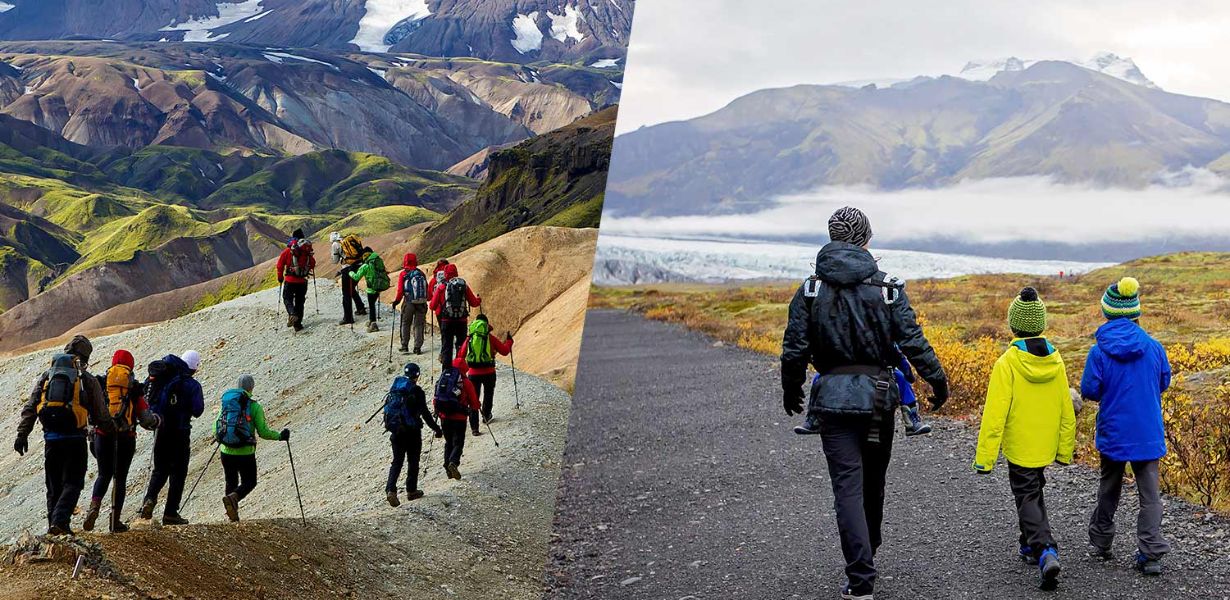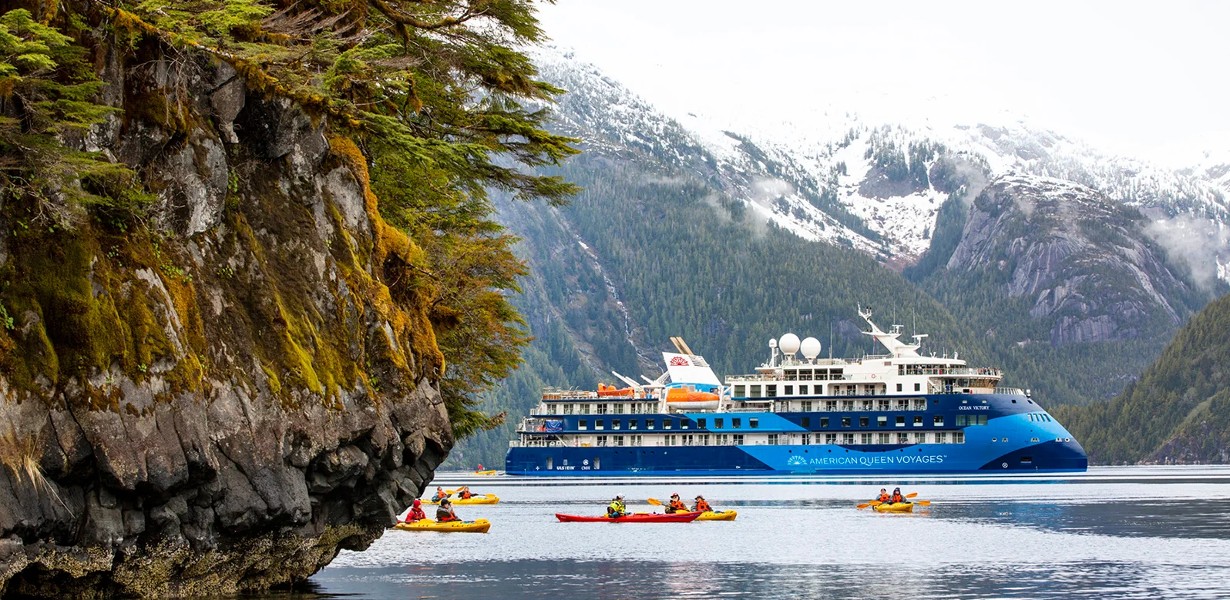
Trekking & Hiking: Embarking on a Journey of Wellness and Discovery
- Post
- August 21, 2023
- Adventure Travel, Travel Types, Trekking & Hiking
- 0 Comments
As we venture into the realm of outdoor exploration, one activity stands out for its profound impact on both physical and mental well-being – trekking and hiking. In an era dominated by screens and sedentary routines, these activities breathe life into our senses, rekindling a connection with nature that is both exhilarating and therapeutic. In this comprehensive guide, we delve into the myriad benefits, activities, and joys that trekking and hiking bring to our lives.
Importance of Hiking: Nourishing the Body and Soul
Hiking is more than just a recreational pursuit; it’s a holistic experience that nurtures our bodies and souls. By immersing ourselves in nature’s embrace, we escape the concrete confines of our daily lives and invite serenity to take over. The rhythmic motion of walking enhances cardiovascular health, strengthens muscles, and bolsters bone density. Breathing in the crisp, unpolluted air revitalizes our lungs, while exposure to natural light replenishes our vitamin D levels. Studies show that spending time in nature reduces stress, anxiety, and depression, elevating our mental well-being.
Trekking Benefits: A Journey to Self-Discovery
Trekking transcends the mere act of walking; it’s a journey of self-discovery and resilience. Trekking trails challenge us physically and mentally, igniting a sense of accomplishment as we conquer obstacles and reach new heights. The experience fosters problem-solving skills, adaptability, and camaraderie among fellow trekkers. With every step, we unravel the mysteries of the wilderness and uncover the depths of our own strengths.
Trekking Activities: From Alpine Summits to Enchanting Forests
The world is a treasure trove of trekking destinations, each offering unique landscapes and challenges. From the rugged terrains of the Himalayas to the enchanting forests of the Amazon, the options are as diverse as they are awe-inspiring. Alpine treks take adventurers to towering peaks, where snow-capped summits and breathtaking vistas await. Coastal trails lead us along pristine beaches and rugged cliffs, merging the beauty of land and sea. Rainforest treks immerse us in a symphony of vibrant flora and fauna, where every step is a discovery.
Hiking Benefits: Nurturing Mind and Body Holistically
Hiking, with its accessibility and simplicity, is a gateway to holistic well-being. It not only invigorates our bodies but also sharpens our minds. As we navigate through trails, our brain engages in mindful awareness, absorbing the sights, sounds, and scents around us. This mental reset fosters creativity, problem-solving, and emotional equilibrium. Hiking also kindles a sense of wonder and gratitude, as we witness the beauty and resilience of the natural world.
Trail Etiquette: Treading Lightly on Nature’s Canvas
While trekking and hiking offer us an escape into nature, responsible practices are imperative to preserve these landscapes for generations to come. By adhering to Leave No Trace principles, we minimize our impact on the environment. This includes packing out all waste, staying on marked trails, and respecting wildlife habitats. By practicing trail etiquette, we ensure that our exploration does not compromise the natural beauty we so cherish.
Planning Your Trekking Adventure: A Roadmap to Success
A successful trekking adventure begins with meticulous planning. Research your chosen trail, considering factors like difficulty level, terrain, and weather conditions. Invest in quality gear that suits the trail’s demands, from sturdy footwear to appropriate clothing layers. Create a comprehensive itinerary, share it with a trusted friend, and consider enlisting the expertise of local guides. Prioritize safety above all, and embrace the uncertainty and excitement that come with embarking on a new journey.
Physical Preparation: Training the Body for the Trail
Preparation is key to a rewarding trekking experience. Engage in a fitness regimen that includes cardiovascular exercises, strength training, and flexibility routines. Gradually increase your endurance and stamina to align with the demands of your chosen trail. Incorporate hikes of increasing difficulty to acclimate your body to different terrains and altitudes. By training your body, you build the foundation for an enjoyable and injury-free trekking experience.
Nutrition and Hydration: Fueling Your Expedition
Proper nutrition and hydration are paramount for sustaining energy levels during trekking and hiking. Pack nutrient-dense snacks such as nuts, dried fruits, and energy bars to refuel on the trail. Stay hydrated by carrying an adequate supply of water and replenishing fluids regularly. Prioritize balanced meals rich in carbohydrates, proteins, and fats in the days leading up to your adventure. Adequate nutrition not only fuels your body but also enhances your endurance and mental focus.
Embracing the Journey: A Mindset of Gratitude
Beyond physical and mental preparedness, cultivating a positive mindset is the cornerstone of a successful trekking experience. Approach the journey with an open heart and a sense of gratitude. Embrace challenges as opportunities for growth and learning. Immerse yourself fully in the present moment, allowing nature’s wonders to envelop you. Each step is a testament to your resilience and spirit of exploration.
Final Words
In the embrace of nature’s grandeur, trekking and hiking offer us a gateway to self-discovery, well-being, and a profound connection with the world around us. As we traverse trails that wind through forests, ascend mountains, and reveal hidden vistas, we not only enrich our physical health but also nourish our souls. The benefits are as diverse as the landscapes themselves, spanning from the exhilaration of reaching a summit to the tranquility of a secluded forest path. So, lace up your boots, heed the call of the wild, and embark on a journey that promises transformation, empowerment, and an enduring appreciation for the beauty that surrounds us.
Commonly Asked Questions
Q: Is trekking suitable for beginners?
A: Absolutely! Many trails cater to beginners, offering varying levels of difficulty. Start with shorter and easier trails to build confidence and gradually progress to more challenging routes.
Q: What gear is essential for a trekking adventure?
A: Essential gear includes sturdy hiking boots, weather-appropriate clothing, a backpack, a hydration system, a map or GPS device, a first aid kit, and a multi-tool.
Q: How can I prevent altitude sickness while trekking at high elevations?
A: Acclimatize gradually by ascending slowly, staying hydrated, and avoiding alcohol. Listen to your body, and descend if symptoms of altitude sickness persist.
Q: Are guided treks worth considering?
A: Guided treks are beneficial, especially in unfamiliar terrain. Local guides offer insights into the landscape, culture, and history, enhancing your overall experience.
Q: What’s the best way to contribute to sustainable trekking?
A: Practice Leave No Trace principles, support local communities, and choose eco-friendly tour operators. By treading lightly and respecting nature, you contribute to its preservation.






